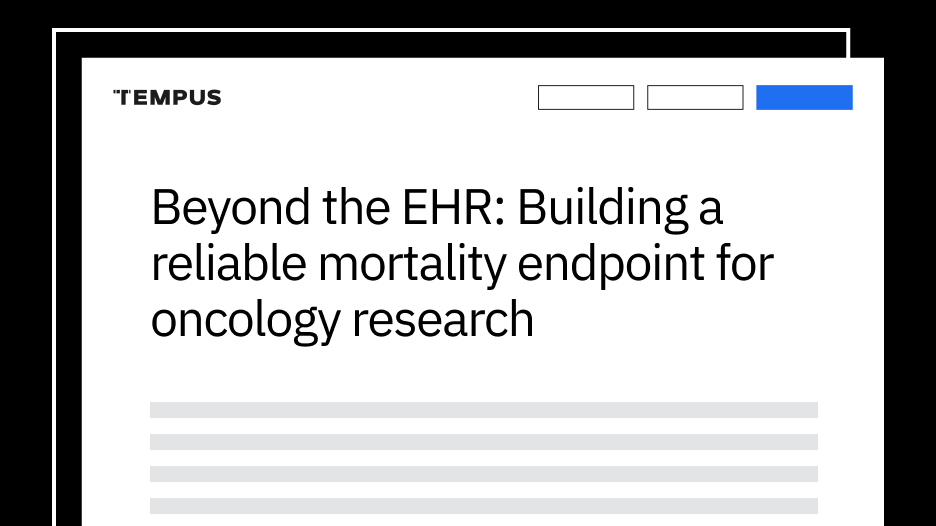-
PROVIDERS
New MRD Medicare Coverage for Select Indications*
*When coverage criteria are met. Additional criteria and exceptions for coverage may apply.
-
LIFE SCIENCES
Register now
UPCOMING WEBINARTranslating data into an actionable R&D strategy
-
PATIENTS
It's About Time
View the Tempus vision.
- RESOURCES
-
ABOUT US
View Job Postings
We’re looking for people who can change the world.
- INVESTORS
09/11/2024
Henry Ford Health
Researchers at Tempus partnered with Henry Ford Health to study and identify the key molecular differences between Black and African American and White patients’ pancreatic tumors.
Certain molecular tumor characteristics occur more frequently in Black & African American (BAA) PDAC tumors. Alterations in genes such as KMT2C, more frequent in our cohort of BAA tumors, are known contributors to pancreatic tumorigenesis and represent potential therapeutic targets. Findings highlight the importance of sequencing tumors from racially and ethnically diverse populations.
“This collaboration with Tempus provides us access to an exceptional resource of real-world data, enabling us to investigate molecular features distinctly associated with race in pancreatic cancer patients at a larger scale than otherwise possible,” said Ling Huang, PhD, Henry Ford Health. “The findings from this study offer new insights into the biological mechanisms underlying racial disparities in pancreatic cancer.”
This study was presented at the AACR Cancer Health Disparities in 2023.
-
02/12/2026
Beyond the EHR: Building a reliable mortality endpoint for oncology research
Emilie Scherrer, Senior Director and Head of Outcomes Research, explains how Tempus’ validated, composite mortality endpoint overcomes data fragmentation to provide a trustworthy foundation for real-world evidence.
Read more -
02/05/2026
Accelerating a phase 1 oncology trial: The TIME Network’s impact on patient enrollment
For life sciences companies, speed and precision are paramount. The ability to efficiently launch a Phase 1 trial and generate early clinical data is fundamental to long-term success. The Tempus TIME Trial Network provides the infrastructure to help achieve these goals.
Read more -
02/05/2026
Building the engine to scale data abstraction through AI
Learn how Tempus’ AI engine, built on agentic architectures, transforms unstructured clinical text into analysis-ready real-world data. Tempus AI leaders detail the multi-layered system that ensures speed, scale, and fidelity.
Read more


